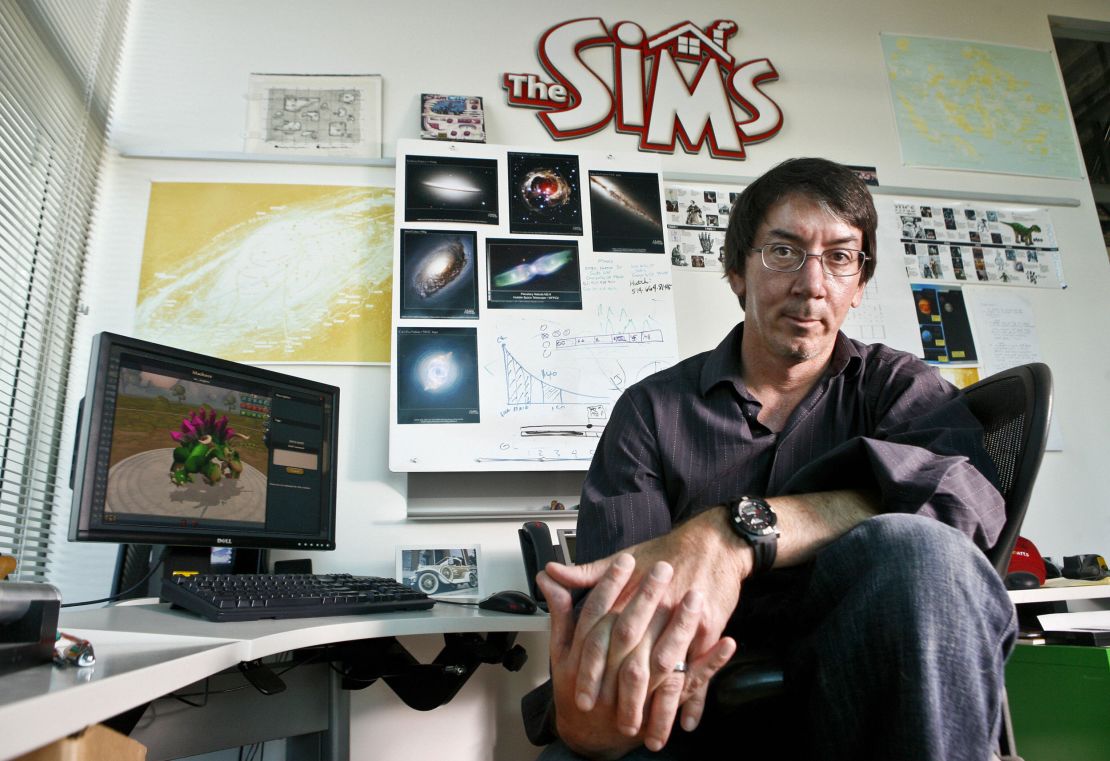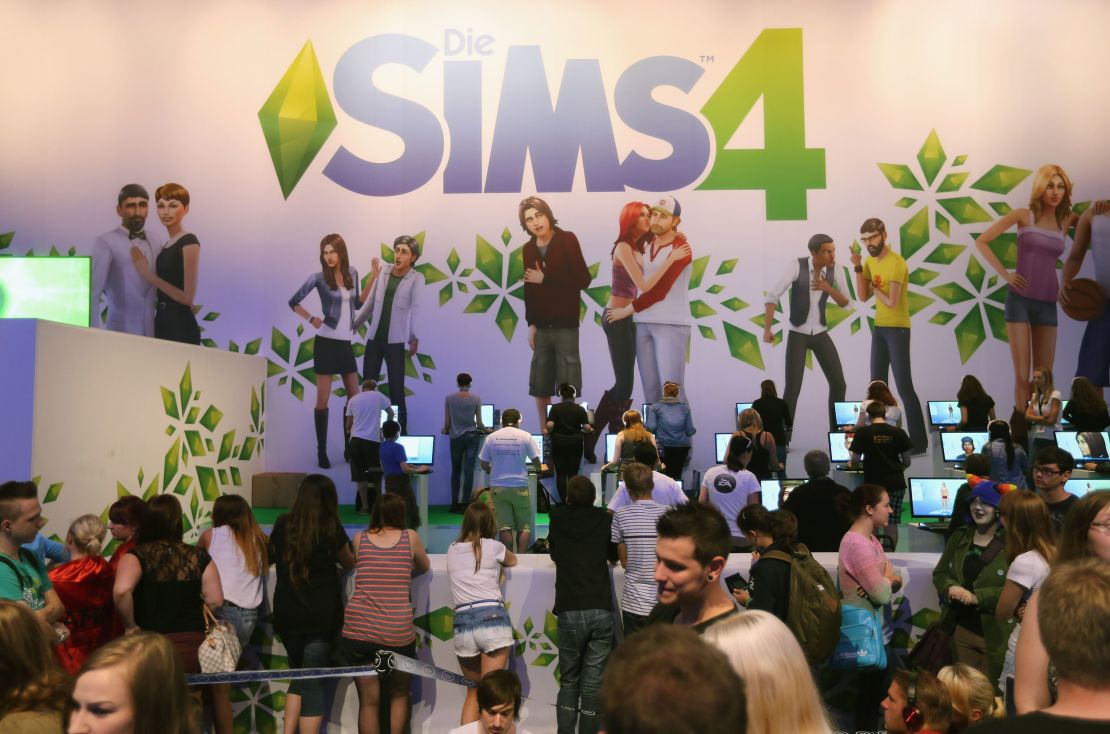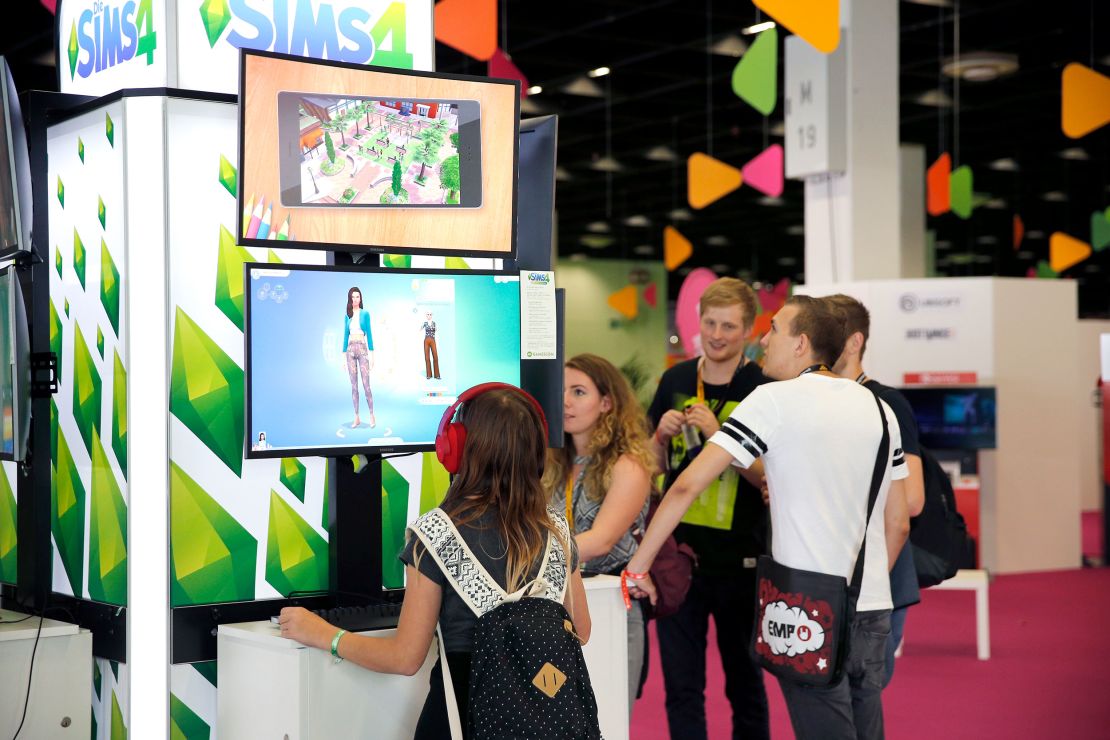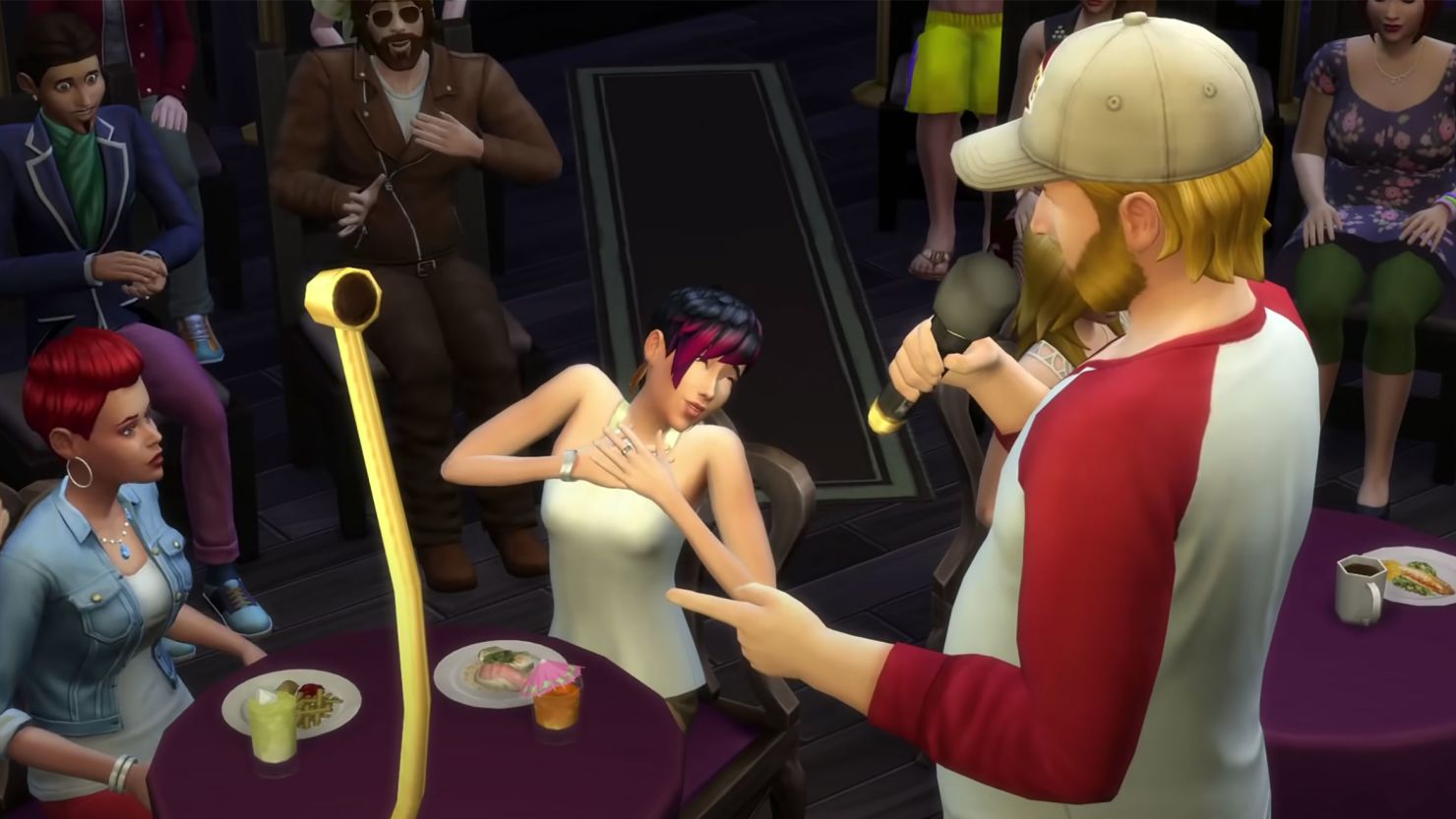Life would be much more simple with a few directions. A status bar, for instance, to remind you to take care of yourself. Perhaps a few clues about other people’s intentions. Oh, and it wouldn’t hurt to have a place to experiment with it all, free from real-world consequences and the awkwardness of choices gone wrong.
Pixel by pixel, life-simulation game “The Sims” has been providing that experience for more than 20 years. Since its first release in 2000, “The Sims” has become one of the best-selling PC games in the world. Time has not dulled its shine, either.
“Sims” creators on Twitch and YouTube put the game through its paces, building complex houses and trying absurd challenges like having as many babies as possible or subjecting their Sims to Kafka-esque psychological tortures (all in good fun, of course). Some pioneering “Sims” creators even role play on Instagram, displaying picture-perfect Sim lives for their other Sim friends to praise and envy.
But “The Sims” is also a haven for neurodiverse players, some of whom grew up with the game and continue to revisit it well into adulthood. “The Sims” is an open-world game, meaning there is no right or wrong way to experience it. Whether one wants to speed-run the apocalypse or just help their little Sims do some laundry, there are no expectations that aren’t set by the player themselves. For some with autism, ADHD or other conditions, that means they can tailor the game to be whatever they want: a place of comfort in a confusing world, a social road map of sorts, an alternate reality where they are in control, or just a lifelong special interest.

The notion that “The Sims” offers a neater, easier version of our own world is built into the game’s DNA. Game creator Will Wright lost his home in California’s 1991 Oakland-Berkeley firestorm. While rebuilding, he was moved to consider what life was really made of. A series of needs to be met? Items to own? People to love?
“When something like this happens, you get a big picture,” he told Berkeleyside in 2011. “Where do I want to live? What sort of things do I need to buy? You see your life almost as a project in process.”
This outlook particularly resonates with people with autism or ADHD who spoke to CNN. “Neurodivergent is a nonmedical term that describes people whose brain develops or works differently for some reason,” according to the Cleveland Clinic. Such conditions present opportunities and challenges in equal measure. Parts of life others might find easy or automatic, like completing daily tasks, looking after basic physical needs and interpreting social situations, are often, to ape Wright’s words, “a project in process.”
Helen Ashcroft, a Sims player and video games editor with autism, first picked up the original “Sims” game when she was 20 years old. Through different life stages, she has found both comfort and creativity in the game’s open-ended play.
“I’ve always been fascinated by human behavior. I also love any game that allows me to build and create. The Sims combined both of these,” she tells CNN.
Of course, you don’t need to be neurodiverse to find comfort in low-stakes, come-as-you-are games like “The Sims.” But for people like Ashcroft, structured social interactions and the ability to create different situations act almost like a laboratory for real life.
“I can play in different ways depending on my mood. Sims have their own emotions for me to discover and I can play out different situations in a safe environment. Neurodiverse players can explore relationship dynamics that don’t come naturally to us,” she says.

Benji, a video game journalist and “Sims” creator with autism who prefers to be called by his social media handle, says he turns to video games as a form of escapism.
“One thing that makes ‘The Sims’ so special is, it’s not ‘punishing,” he tells CNN. “It’s a very good oasis, so to speak. My daily life asks so much from me, and I just get to sit down and do whatever the heck I want with those little people.”
Benji says he gets the most satisfaction out of the game by setting goals for his Sims and mapping out what their story is going to be like. And while, as a highly social person, he doesn’t identify as much with the emotional aspects of the game, there have been times when he’s felt surprisingly seen.
“At one point, the developers introduced a new trait – now a Sim could be an ‘overachiever.’ So when I applied that trait to one of my Sims, he would get bored and restless when his life became dormant. When he took on challenging tasks, he was so happy and fulfilled. And I thought, ‘Wow. I’ve never related so much to a Sim in my life.’”

Educators and psychology professionals have observed the benefits of life simulator games like “The Sims,” not just for neurodiverse groups, but also those with brain injuries or those coming from underprivileged backgrounds. Research from the University of Pittsburgh shows “Sims”-like games helped a group of children with cognitive challenges improve problem-solving skills and recognize how different traits affect behavior.
Research from the University of Kentucky suggests simulation games can help those with ADHD mimic, and thereby hone, executive functioning skills.
People with autism and ADHD aren’t the only ones who find satisfaction from inhabiting a world of their own design. As communities have naturally formed around “The Sims” and its many expansions and modifications, other marginalized identities have recognized a similar value. Some LGBTQ “Sims” players say the game helped them on the path to living their true selves. (“Sims” characters have always been able to pursue romantic relationships with any other adult Sim, regardless of gender.)
“When I realized I was gay, I couldn’t share it with others,” Polish “Sims” user DOTSim told Electronic Arts, the video game company that publishes “The Sims.” “I think that the opportunity to freely express myself in a safe environment of the game has given me the courage to finally come out.”
Over the years, EA has released several updates that allow people to fully customize their appearance, race, cultural identity, gender identity and sexuality. Benji, who is from Sao Paulo, Brazil, says he’s noticed occasional updates that include cultures outside the US, like music from international artists recorded in Simlish, the Sims’ language.
This inclusion underscores the very reason neurodivergent players keep booting up “The Sims,” year after year, through all stages of life. When the world doesn’t seem built for you, it’s a relief to be able to build one yourself.




